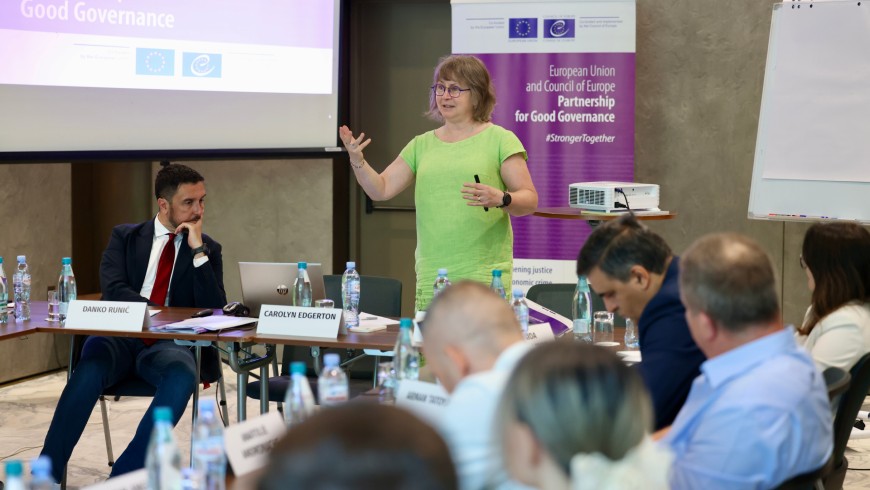Representatives of law schools from major universities in Armenia, Georgia, Republic of Moldova and Ukraine met in Tbilisi to discuss gender mainstreaming efforts including across the curricula. Over the course of two days, professors of law benefitted from several presentations, including on the gender mainstreaming checklist for law schools. They also drafted recommendations on measures to mainstream gender.
Key recommendations included organising mandatory gender awareness training for both managerial level and teaching staff, identifying programmes and modules within existing curriculum for a gender audit, designing new programmes and modules in line with the Council of Europe standards on gender equality and implementing measures aimed at enhancing student interest in gender equality such as awards for excellence, opportunities for extracurricular studies including the relevant HELP courses, conferences, workshops, etc. Other recommendations included engaging and inviting guest speakers, organising moot courts, establishing law clinics, promoting internships and mentoring programmes, as well as promoting and publishing academic scholarship on gender equality issues.
This activity is part of the European Union and the Council of Europe joint programme “Partnership for Good Governance”, co-funded by the European Union and the Council of Europe, and implemented by the Council of Europe, in the framework of the regional project “Women's Access to Justice: implementing Council of Europe’s gender equality and violence against women standards”.





